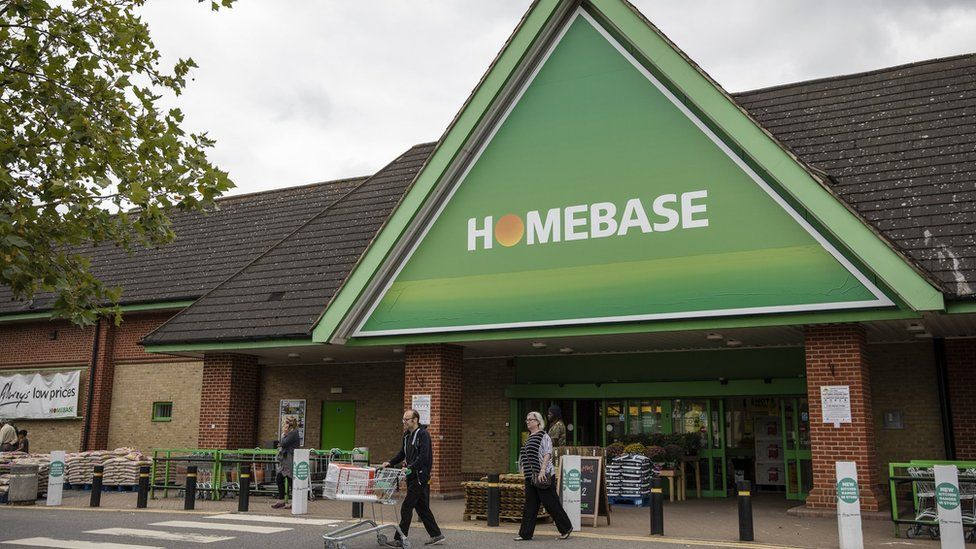Homebase rescue plan voted through by creditors
- Published

Homebase creditors have voted in favour of a rescue plan that will result in 42 stores closing.
The chief executive of Homebase said the company voluntary arrangement (CVA) would help turn the business around and return it to profitability.
Some landlords had planned to vote against the CVA, complaining that it treated them unfairly.
Hilco Capital, which bought the retailer for £1 in June, plans to invest £25m to revive the DIY chain.
"We now have the platform to turn the business around and return to profitability," said Homebase chief executive Damian McGloughlin.
"We can look to the future with great confidence, and we will be working closely with our suppliers to capitalise on the opportunities we see in the home improvement market in the UK and Ireland."
This year 16 stores have been shut with another 42 earmarked for closure by early 2019, putting 1,500 jobs at risk.
The professional services firm Alvarez & Marsal will carry out the CVA.
The rescue deal for Homebase follows a turbulent few years.
Australia's Wesfarmers bought the retailer for £340m in 2016 and rebranded the chain as Bunnings.
It made a series of blunders, including underestimating winter demand for items such as heaters and dropping popular kitchen and bathroom ranges, sending sales sliding. Wesfarmers took a £770m loss after selling Homebase.
The new owners of the chain, which has about 250 stores and 11,500 staff, now plans to bring back popular brands and concessions such as Laura Ashley and Habitat.
Hilco has revived the fortunes of other retailers and is best known for rescuing music chain HMV from administration in 2013.
However, the restructuring specialist also tried to rescue Allders and Allied Carpets, both of which later went into administration.
Mark Williams, president of the retail and property organisation Revo, is concerned about the impact that the rescue plan will have on landlords.
"The fact that Homebase is able to proceed with this CVA despite either opposition or a genuine feeling of uncomfortableness from the creditor group most impacted underlines that this legislation is completely broken," he said.
"The current process forces property owners, many of which are pension funds investing our money for retirement, to pay for the mistakes of the business owners, and the Government's failure to reform the business rates system."
He added that legal challenges are now the only way for creditors to get a fairer deal with it comes to the use of CVAs, since the government doesn't seem to want to intervene.
- Published14 August 2018
- Published25 May 2018
- Published25 May 2018